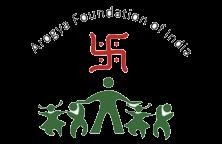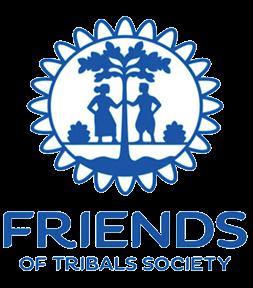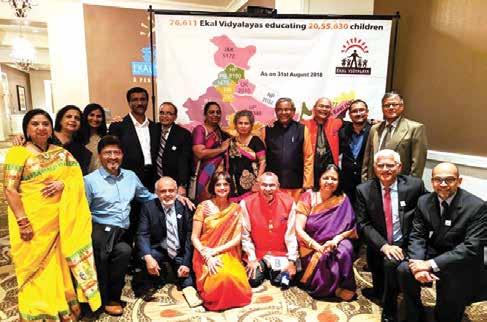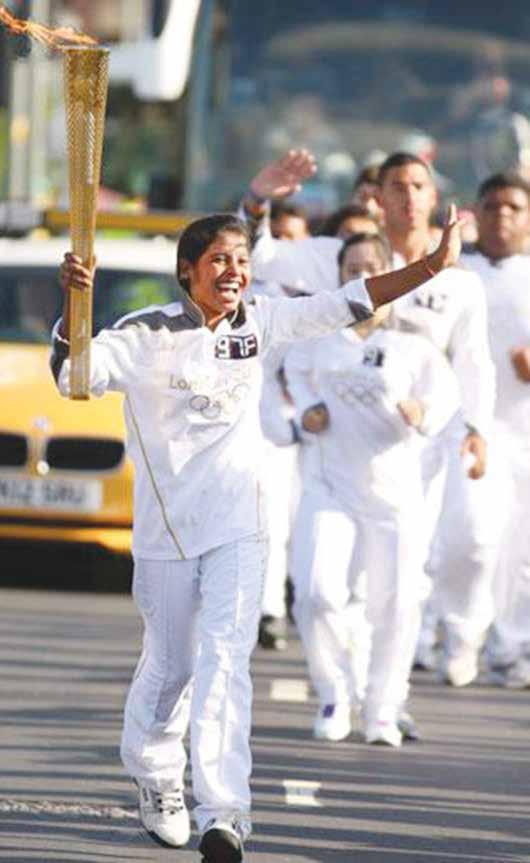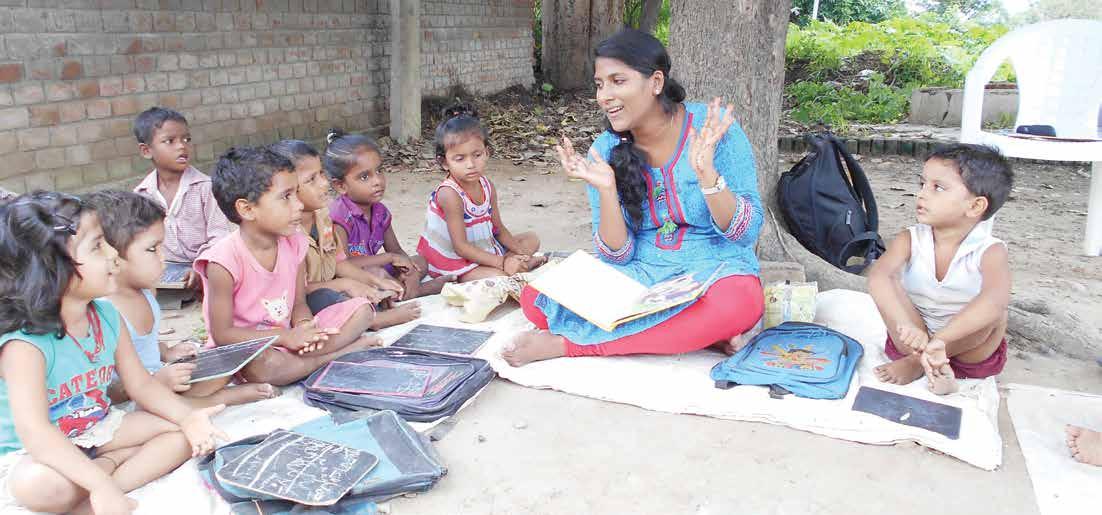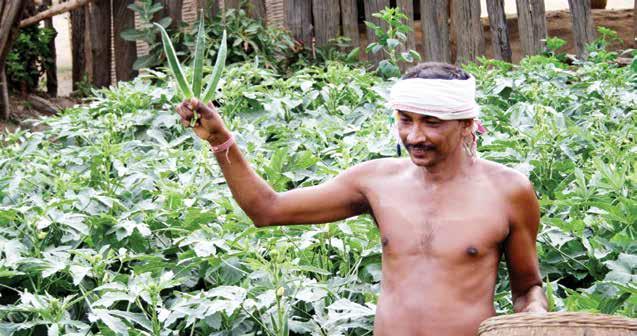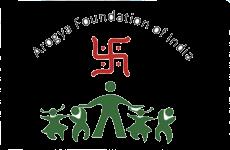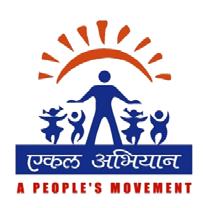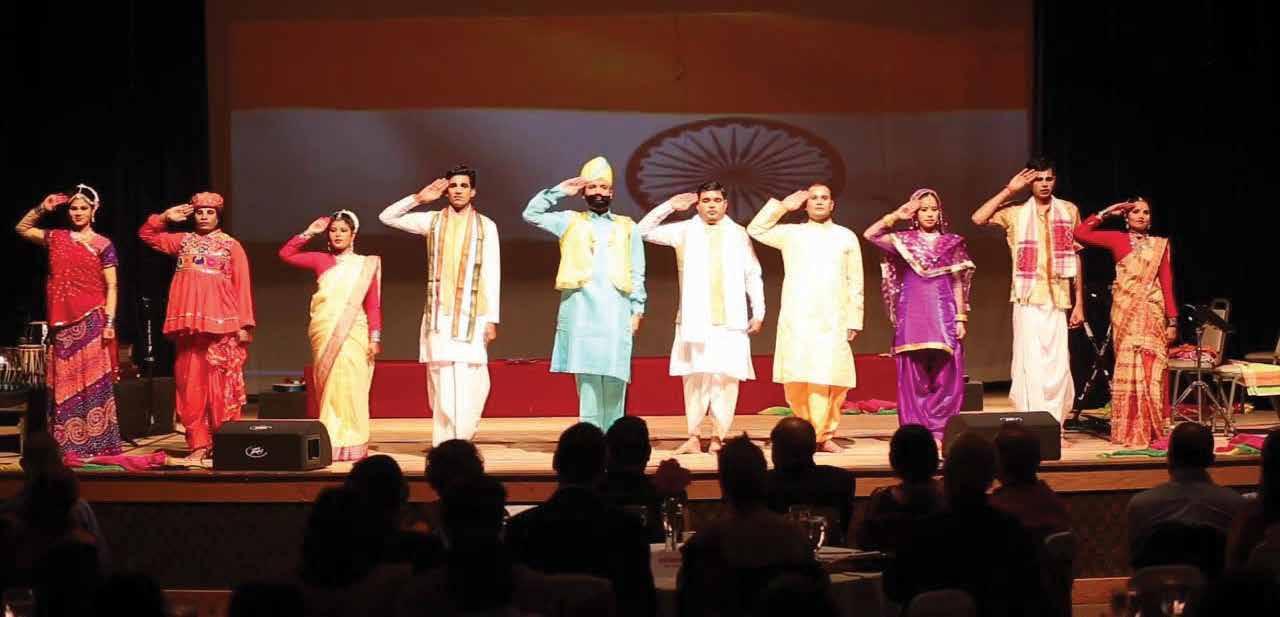
10 minute read
EKAL Movement
Bharat Lok ShikSha PariShad
Bringing happiness to tribal and rural communities through education
Advertisement
India is predominantly populated by rural communities. A large portion of such rural population is tribal and located in remote areas, have largely escaped fruits of growth, change and development that should have taken India forward.
The Need
The pioneer leaders of Ekal movement decided to address this perennial problem and assessed that key to the solution lie in education. Basic primary education to children in these remote villages would enable them access to further higher education. Even if some students cannot move further for whatever reasons, the basic education of reading, writing, arithmetic and awareness on hygiene, cleanliness, local sports, rights, moral values etc would equip them suitably to live a better life. Need for arranging formal education were manifold like infrastructure and trained teachers which were not easy to manage, the former for financial constraints and later for availability of trained teachers from the same areas. Arranging teachers from outside was (and still is) not a feasible option for the teachers not well versed with local language and dialect were not capable of communication with children nor were facilities available for their stay in these remote areas or for commuting from nearby towns.
This led to evolution of a unique model of one teacher school and hence the name Ekal.
Journey in Time
Ekal Vidyalaya movement, started in 1988 from Jharkhand, has now spread all over India. Ekal imparts Informal primary education to 25,42,236 students enrolled as on June 2019 in 94,897 villages in 25 states of India & Nepal. Most of Ekal Vidyalaya students move further to formal education by getting admitted in class 4th or 6th in Government schools. Ekal schools have grown at CAGR of 17% over last 15 years.
Ekal Abhiyan Trust is the apex body, registered under Indian Trusts Act, laying down policy and planning framework. The field operations are undertaken by its organisations which are independently registered as autonomous bodies under Societies Act or Indian Trusts Act. These follow the curriculum designed by experts together with the protocol on training, supervision, organisation, accounting and compliances as decided by the Trust. Operating organisations are listed under:-
• friends of Tribal Society (Van Bandhu Parishad), Kolkata
– Raising resources and running Ekal schools in Eastern,
Western and Sothern regions of India. Formed in January, 1989, the first and the leader.
• Bharat Lok Shiksha Parishad, New Delhi. – Raising resources and running Ekal schools in Northern region of
India. Formed in year 2000.
• Ekal Vidyalaya Foundation of India, New Delhi – Raising resources from abroad and running Ekal schools in some parts of Northern region of India. Formed in year 2000. Schools in other parts are operated through the institutions listed above. • Arogya Foundation of India, Mumbai – Raising resources and running rural health services. • Ekal Gramothan Foundation, Delhi – Raising resources and running rural and skill development and empowerment activities.
• Shri Hari Satsang Samiti, Mumbai and Kolkata and Vanvasi
Raksha Parivar Foundation, New Delhi- Raising resources for imparting value and moral education aimed at deaddiction, social harmony and promoting cultural heritage. • Ekal Sansthan, New Delhi – All research, media and academic works of the movement. • Ekal Global- Ekal Global have been set up in USA, UK,
Bharat Lok ShikSha PariShad
Students & teacher performing Prayer at Ekal School
Australia and Canada under their local laws, in addition to support groups formed in 13 other countries
Challenging Locations
About half of Ekal schools are located in areas affected by various kinds of extremism like Maoists in Jharkhand, Bihar, Chhattisgarh, Maharashtra, Odisha, West Bengal, Andhra Pradesh and Telangana, Naga, Bodo and Kuki extremists in north-east, separatists in Kashmir etc. Large parts of the remaining villages too lie in conflict zones being in international borders.
Above Discrimination
Ekal serves tribal and rural communities sans any consideration of caste, creed, faith, religion, sex or any other classification. All Ekal schools in Kashmir valley, in close to 400 villages, have local teachers, trainers and students exclusively from local community.
Cost Effective
The school operations are carried out on shoe string budget with administrative overheads restricted to below 10 percent. This is possible with the manpower resources deployed being mostly on voluntary basis, with reimbursement of travel and out of pocket expenses constituting the only expenditure on them. The cost of running 3 hours a day school, for about 270 days a year, catering 30 students on average, is `22,000 per annum.
Support
The cost of school operations are mostly met by contributions from community in India (with a small portion from CSR) and from
NRIs/PIOs settled abroad. Presently, close to one third schools are supported by contribution from overseas NRIs and PIOs.
Beyond Education – Integrated Development
Ekal with 29 years of experience of working with tribal and rural communities has taken up integrated and holistic development of villages with special interventions in areas beyond education: health and rural development. The organisation structure developed over two decades providing deep access to remotest areas has been further harnessed for the purpose through various organization under Ekal Abhiyan through various organization under Ekal Abhiyan mentioned above.
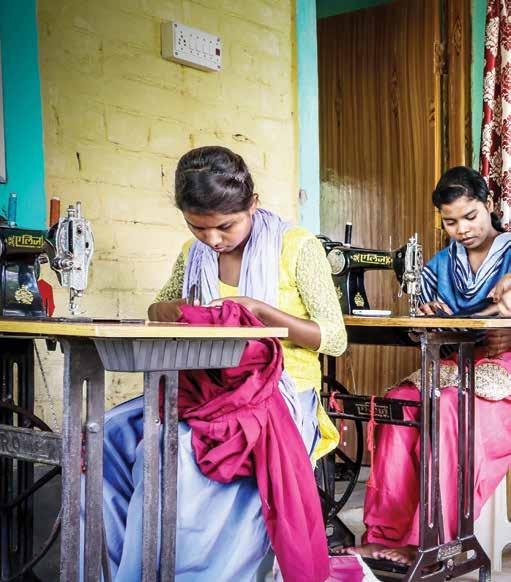
Health (Arogya Foundation)
Health camps are organised in each block where Ekal schools are run, twice a year catering various expert medical services to rural communities including free medicines. Special project to eradicate anaemia was taken up with women in age group of 12 to 45 years and children of 2 to 10 years age and covered 960 villages with a trained health worker functioning in each of these villages. Recently, tele-medicine project was started in Odisha. Close to 3,000 medical professionals support these services as volunteers. 34 Arogya Resource Centres are established.
Development (Ekal Gramothan Foundation)
To enhance income of families, various projects have been undertaken like organic farming, tree plantation, skill development, de-addiction etc. 21 Mobile computer labs are in operation in remote tribal villages to reduce the digital divide.
Empowerment
Empowerment of rural communities is addressed by educating them with tools like RTI through weekly adult schools.
Sanskar
Weekly gatherings held to inculcate cultural values like de-addiction (from liquor and tobacco), social harmony, patriotism etc.
People’s Movement
Ekal is a movement with probably the largest pool of volunteers in the country, supported by a huge pool of individual donors, reflecting highest possible degree of transparency and the trust of the people in the philosophy of the movement. The No. of various kinds of volunteers are: Teachers from the same village: 94,897 (3 hours- 24 days a month). Full time volunteers from rural and tribal background: 7197 (full time for 25 days a month).
Part-time volunteers serving as Committee members at village, block, district, division, state and national levels: 306119 (looking after operations, honorary). Part-time volunteers from cities: 1371 in India and 585 abroad (providing financial and compliance support, honorary).
Bharat Lok ShikSha PariShad
Women Empowerment
Ekal movement has made women change agents to take the issue of women empowerment at grassroots level. A unique feature of Ekal school movement is that about 72% teachers are female. The ratio of male and female in students is 50:50.
To enhance income of families girls learn stitching in villages at Ekal Gramothan centres
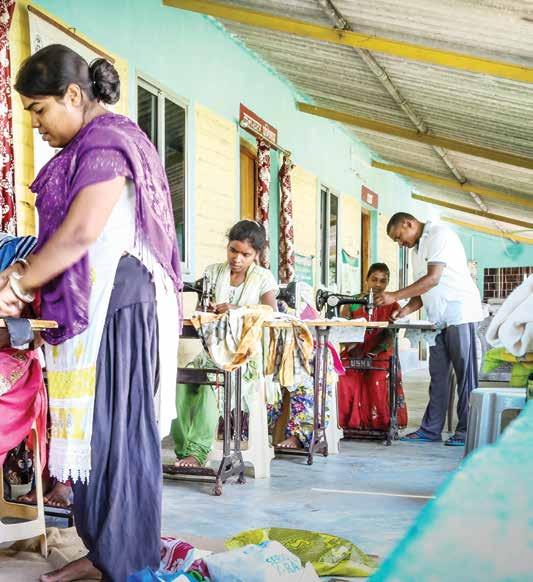
Transparency and Compliance
The compliance record of all Ekal bodies has been excellent in that all legal requirements under various applicable laws like Income Tax, FEMA, and FCRA etc. have always been fulfilled in all respects. The accounts of all bodies are regularly audited by qualified CA firms. The organisations enjoy exemption under section 12A and 80G of Income Tax Act.
The highest level of transparency in financial transactions is achieved through 100% receipts of support by cheque or bank transfer and payments for about 98% expenditure including to teachers, volunteers (fulltime Sevavrati Karyakartas) and others made through bank transfer (NEFT) only.
Rural Health and Swachchhata
A study was made by Asian Development Research Institute (ADRI), Ranchi in 2017 bringing out wide impact of a project undertaken in 104 villages of Jharkhand. An in-house impact assessment was made of pilot project on Anaemia control in women of tribal villages in 2015. It was based on hugely positive impact brought out by this assessment that the project has now been taken up for implementation in all Ekal villages. Bharat Lok ShikSha PariShad
Mobile Computer Lab
A study was made by ADRI, Ranchi on impact of the first mobile computer lab operated in West Singhbhum district of Jharkhand. All the above study reports are available on our site www.ekal.org
A research scholar, Dr. Sunanda Palkar has been awarded Ph.D. on Ekal working. A paper has also been published by Harvard School of Business on Ekal model, reach and impact.
Critical Dependence for basic education
Despite several villages now having Government primary schools under ServaSiksha Abhiyan and Right to Education Act, the Ekal schools continue to be the only or main source of basic education, for the varied reasons such as poor infrastructure of the Government schools, the schools either not having teachers at all or if posted, the poor attendance of teachers in such remote areas. As much as 90% of Ekal students further pursue education in Govt. schools in nearby villages, taking admission in class 4 or 5. The dropout rate of Ekal students is relatively very low compared to other students.
Lowest Overheads
The Organisation works with minimum overheads. This is most likely the lowest overhead organisation despite its operations being at large scale, widely spread out and with deepest reach in rural geographies. The key to such low overheads is its workforce being on volunteer basis.
Key leaders
The Trustees and Executive Committees members of the bodies comprise of prominent personalities in sectors of commerce, industry, education, social service and rural economics. All of them are professionals of high repute in their respective fields. Most of them are Industrialists, Chartered Accountants, Engineers and Academicians. n
Bharat Lok ShikSha PariShad
ekal abHiyan
The Proud Partner Organisations of Ekal Abhiyan

BHARAT LOK SHIKSHA PARISHAD
fRIENDS Of TRIBALS SOCIETY
EKAL VIDYALAYA fOUNDATION Of INDIA
CULTURAL SOCIETY fOR TRIBAL
EKAL GRAMOTHAN fOUNDATION
PAGE 76
Bharat Lok Shiksha Parishad (BLSP) was founded & registered on 3.3.2000 by a group of persons comprising Shri Laxmi Goel, Shri Subhash Aggrawal, Late Shri Roshan Lal Aggrawal, Shri Omkar Bhave, Shri Om Prakash Singhal and Shri Sat Narain Bandhu with a vision to bring an all round...
WWW.BLSPINDIA.ORG
PAGE 80
Friends of Tribals Society (FTS), a non-government, voluntary organization is committed to the upliftment of tribals and other deprived populations in rural India, by providing basic education to their children and giving the villagers health care education, development education and empowerment education.
WWW.fTSINDIA.COM
The Ekal Vidyalaya Foundation is tax exempt, registered non-profit service organization dedicated to education and village development in rural India. Ekal’s philosophy is to take a holistic approach to social and economic development The Society strives to inculcate sense of pride for traditional culture and heritage, moral values, civic responsibilities and eradicating certain social evils like addiction to liquor and tobacco, divisive tendencies on lines of caste etc. Gramothan Resource Centers, or Village Development Resource centers are established at the center of a 100 villages. In addition to skill training, the centers also have demonstration units to showcase agricultural techniques. The centers are built to be aligned with the government skill training program will offer those programs at the center.
PAGE 82
WWW.EKAL.ORG/IN
PAGE 84
WWW.SHSS.ORG.IN
PAGE 86
WWW.EKALGRAMOTHAN.ORG
Bharat Lok ShikSha PariShad
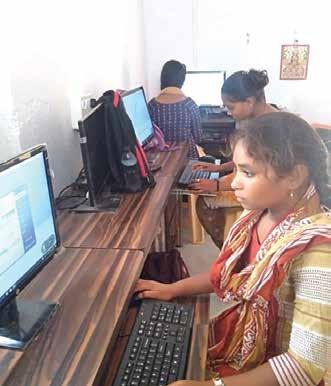
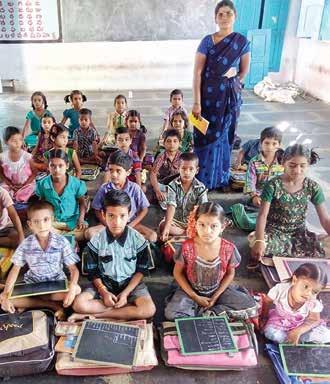
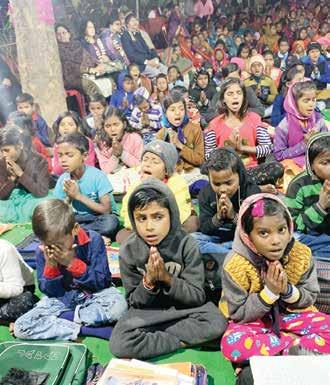
EKAL GLOBAL fOUNDATION
PAGE 88
An organisation to spread Ekal ideology and model to all corners of globe, by setting up, promoting and strengthening Chapters in various countries, specially where Diaspora resides to keep them linked to Bharat and raise ideas and resources for growth of Ekal Abhiyan.
Arogya Foundation of India is a member in Ekal Family which looks after Integrated and overall health-care activity. Ekal Vidyalaya Movement has taken distinctive approach in bringing non formal education to the door-steps of villages, where children are offered supportive education.
Ekal Sansthan’s, mission is to bring forward the ideas, which can change the landscape of rural and tribal development in India. The seminar was a part of the efforts of Ekal Sansthan to enlighten people about the success story of 25 years of Ekal Vidyalaya Movement that has its presence in nearly 60,000 villages across India.
WWW.EKAL.ORG/IN
